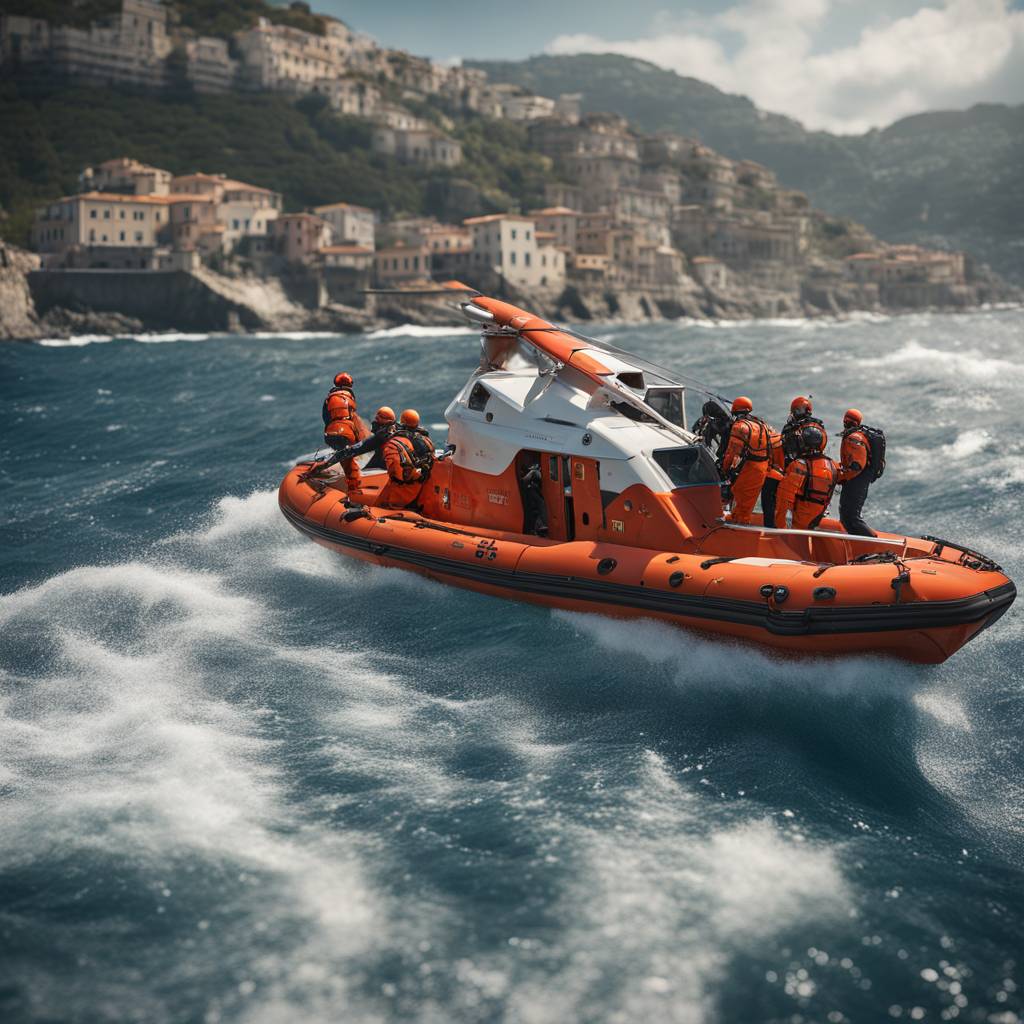A tragic incident occurred off the coast of Lampedusa when a smugglers’ boat capsized in a storm, leading to the deaths of nine migrants and the rescue of 22 others. The boat had departed from Sfax, Tunisia with 46 people on board, mainly from Guinea, Burkina Faso, Mali, and Ivory Coast. The survivors reported that the boat capsized after the engine malfunctioned and the group was left adrift in rough seas with waves reaching up to five meters high. Among the victims were a six-month-old child and eight men, while six survivors were treated for severe hypothermia and dehydration.
The Italian Coast Guard played a crucial role in rescuing the survivors and recovering the bodies of the victims from the capsized boat. Despite the challenging weather conditions, the Coast Guard continued air surveillance in the area, which falls under Malta’s search-and-rescue jurisdiction. Concerns have been raised about an increase in the number of crossing attempts as the summer season approaches, potentially leading to more shipwrecks. Italy’s government has been cracking down on charity rescue boats, restricting their operations and impounding those that violate regulations.
As the summer season approaches, Federico Fossi, a spokesperson for the UNHCR in Italy, warned that more incidents at sea are expected as migrants continue to embark on dangerous journeys in unseaworthy boats. The International Organization for Migration reported that 385 migrants have gone missing along the central Mediterranean route to Italy this year, with a total of 23,109 missing since the organization launched the missing migrants project in 2014. This highlights the ongoing dangers faced by migrants attempting to reach Europe through perilous sea crossings.
The tragic incident off the coast of Lampedusa serves as a grim reminder of the risks and challenges faced by migrants seeking a better life in Europe. The suffering and loss of life resulting from shipwrecks and dangerous crossings underscore the urgent need for comprehensive and humane solutions to address the root causes of migration. Efforts to improve search and rescue operations, combat human trafficking, and provide safe and legal pathways for migrants are essential to prevent further tragedies at sea.
The European Union and its member states must work together to address the humanitarian crisis in the Mediterranean and uphold their obligations to protect the rights of migrants and refugees. This includes ensuring access to asylum procedures, safe and legal migration routes, and adequate support for those in need. It is imperative that solidarity and cooperation guide European policies on migration, rather than restrictive measures that prioritize border control over human rights.
The international community must also engage in efforts to address the underlying issues that drive people to undertake dangerous journeys in search of safety and opportunity. This includes addressing conflict, poverty, and human rights abuses in countries of origin, as well as supporting sustainable development and humanitarian assistance to address the root causes of migration. Only through collective action and a commitment to shared responsibility can we hope to prevent future tragedies and ensure the safety and dignity of all migrants and refugees.













